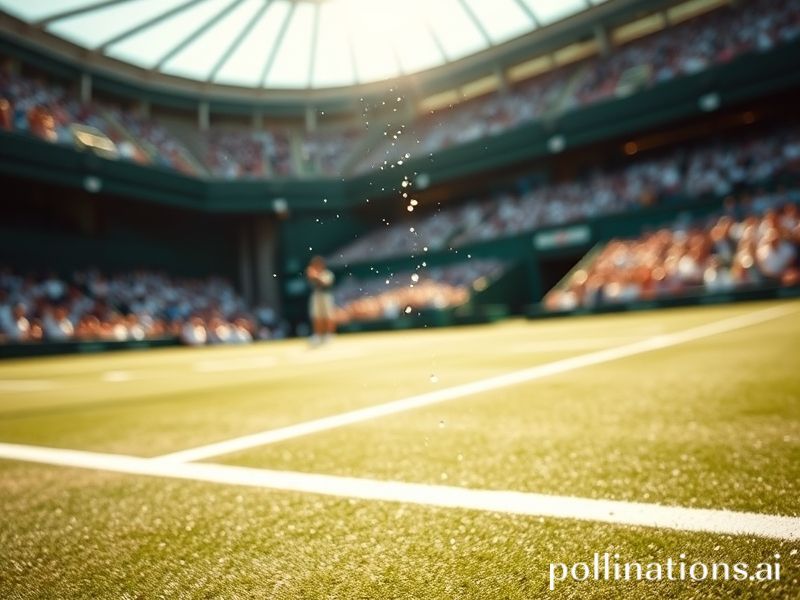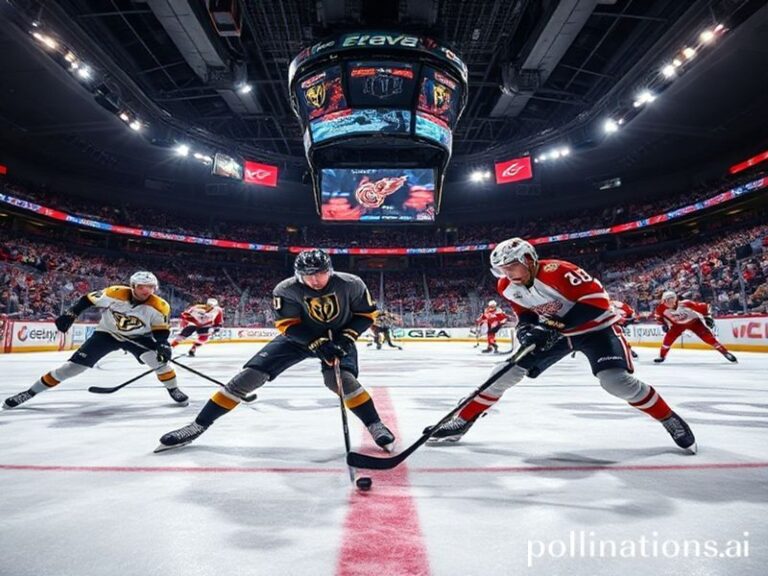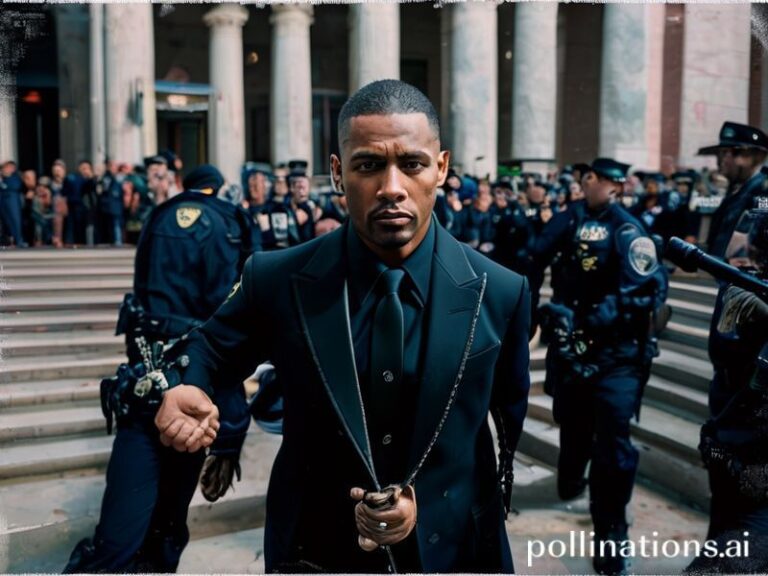Djokovic: The Stateless Champion Who Turned Tennis into a Geopolitical Fault Line
Novak Djokovic is no longer just a tennis player; he is a walking diplomatic incident wearing sweat-wicking polyester. To the untrained eye he chases fuzzy yellow balls, but to immigration officers, constitutional lawyers, and Balkan conspiracy theorists he is a one-man geopolitical crisis who happens to have a two-handed backhand. In the grand carnival of 21st-century absurdity, Djokovic has become the rare athlete whose box score occasionally includes “court of law” next to “court of clay.”
Let us begin where all modern sagas begin: an airport holding cell. January 2022, Melbourne’s Tullamarine—a city that had spent 263 days under lockdown and was in no mood for theological exemptions, gluten-related or otherwise. Djokovic arrived with a visa, a medical exemption, and the serene confidence of a man who had won the Australian Open nine times and assumed the continent would bend like one of his cross-court passing shots. Australia, fresh from banning its own citizens from returning home, disagreed. The subsequent eleven-day legal opera—equal parts Kafka and Centre Court—ended with Djokovic on a chartered flight out, the world’s best player deported for posing a “threat to civil order,” a phrase previously reserved for arms dealers and people who recline their airplane seats.
The ripple effects were immediate and international. Serbian tabloids dusted off centuries-old grievances, invoking Ottoman sieges and NATO bombings in the same breath as a missed forehand. European Union lawmakers, never ones to waste a sporting scandal, held hearings on “vaccine equity” while quietly counting the number of their own citizens still unjabbed. Meanwhile, in Beijing two weeks later, Chinese state television gleefully replayed the deportation footage under the chyron “Western hypocrisy on public health,” just minutes before cutting to a Uyghur folk dance. Djokovic had become a convenient mirror in which every nation could admire its own bruises.
Fast forward to 2023. The same man who was once deemed too dangerous for Australia’s pristine hardcourts was now hoisted aloft in Melbourne Park, trophy glinting like a diplomatic apology. The official line: “Rules had changed.” The unofficial line: television contracts. Nine million Australians tuned in, half to cheer, half to boo, all to pretend last year’s moral panic had merely been an umpire’s overrule. Human memory, it turns out, lasts roughly the span of a Grand Slam tournament.
Globally, the Djokovic parable tracks our wider neuroses about borders, bodily autonomy, and who gets to be an exception. France initially barred him from Roland Garros, then shrugged Gallically and let him chase history anyway. Wimbledon, still clinging to the delusion that strawberries and cream constitute a public-health strategy, welcomed him with open arms—until British tabloids discovered his family watching matches from a Belgrade flat decked with Russian flags, launching a fresh cycle of outrage that lasted exactly until the next royal divorce rumor. In the United States, Djokovic’s unvaccinated status rendered him ineligible for the US Open, prompting Fox News to discover a sudden passion for Serbian tennis while MSNBC rediscovered federal immigration law. Somewhere in Florida, an aging golfer reportedly asked his lawyers if green jackets came with medical exemptions.
The numbers, for those who still trust them, are obscene: 24 Grand Slam singles titles, 400+ weeks at world No. 1, a head-to-head record against his two “Big Three” colleagues that reads like a Cold War dossier—advantage, Comrade Novak. Yet outside the lines, Djokovic’s real legacy may be as a stress test for liberal democracies: how quickly we swap procedure for populism, how eagerly a public health debate mutates into a referendum on national identity. The man serves aces at 200 km/h; we serve tribalism at the speed of a push alert.
Conclusion: In the end, Djokovic will retire, the pandemic will be rebranded as a seasonal inconvenience, and historians will argue whether he was a principled dissenter or merely a multimillionaire who confused inconvenience with oppression. The rest of us will remember him as the only sports figure who could make customs officials sound like line judges: “Foot fault on humanity—second service.” Until then, keep your passport, vaccination card, and drop-shot ready. The game is no longer just tennis; it’s citizenship in the age of perpetual tiebreak.







